UVA Fruit LLC has been firmly established at the Vienna wholesale market Inzersdorf for many years. At present, the company offers its wholesale customers (in Austria, Germany, the Netherlands, Belgium, France and Sweden) a rich selection of Turkish vegetables. These vegetables usually arrive in Vienna and other parts of the EU several times a week throughout the year, but the company's main focus is the trade in seasonal fruit from Turkey, says owner Ziya Sizgin.
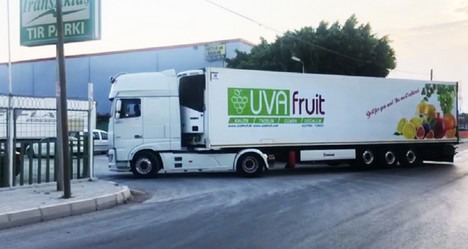 Several times a week, trucks with fresh agricultural products from Turkey are arriving in Vienna.
Several times a week, trucks with fresh agricultural products from Turkey are arriving in Vienna.
Start of the Turkish cherry season is imminent
"Grapes, figs, pomegranates, citrus fruits and cherries; those are our core competence. The latter will soon be arriving here by the end of this week at the earliest. Although the season has started earlier, we have decided to do without the first cherries, waiting for the right quality to be available on the market," Sizgin explains.
According to Sizgin, the demand for Turkish agricultural products has soared in recent years. Meanwhile, the imported goods of UVA Fruit are sold via intermediates in the Austrian food retail trade as well as on German fresh markets, such as Stuttgart, Nuremberg, Leipzig, Dortmund, Wuppertal and Cologne. "Due to the close connection with our business partner UVA Fruit in Turkey, we can fall back on direct imports from the important growing areas Antalya and Bursa. UVA Fruit Turkey now also has the corresponding certifications (e.g. Global Gap and SMETA as social audit).
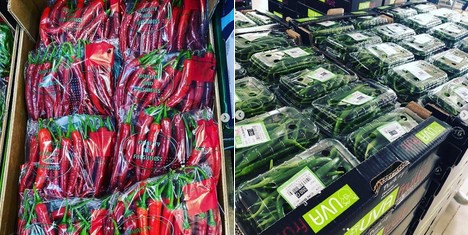 In contrast to the alarming reports in the media, Mr. Sizgin does not see any significant price increases for Turkish vegetable products. The prices for peppers even are significantly below last year's levels.
In contrast to the alarming reports in the media, Mr. Sizgin does not see any significant price increases for Turkish vegetable products. The prices for peppers even are significantly below last year's levels.
Corona: Turkey as an alternative for Spain?
As a well-known supplier to the Western European markets, Mr Sizgin sees further growth potential for Turkish agricultural products. For retailers, sometimes the current crisis is more of an opportunity than a challenge. "Of course we too have had to struggle with logistical problems, especially at the start of the crisis. But we were well prepared organisationally: Thanks to our direct procurement of goods and in-house logistics, we were able to solve these challenges quickly."
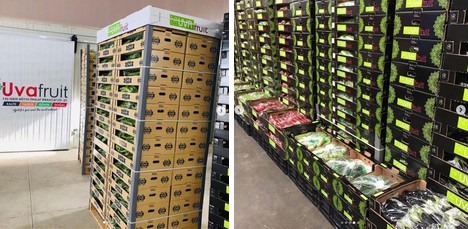 The start of the Turkish fruit season is now imminent. In a few days the first cherries will arrive, followed by figs at the beginning of August, grapes and pomegranates will probably be available from September.
The start of the Turkish fruit season is now imminent. In a few days the first cherries will arrive, followed by figs at the beginning of August, grapes and pomegranates will probably be available from September.
Meanwhile, there are now huge delivery problems in large parts of the Mediterranean region - for example Spain and Italy - due to the acute shortage of harvest workers. This could have a positive short-term impact on the marketing of Turkish produce, Sizgin believes. "Turkey has always been an interesting alternative for Spain and Italy, but given the current circumstances, we expect Turkish products to have even better market opportunities this year."
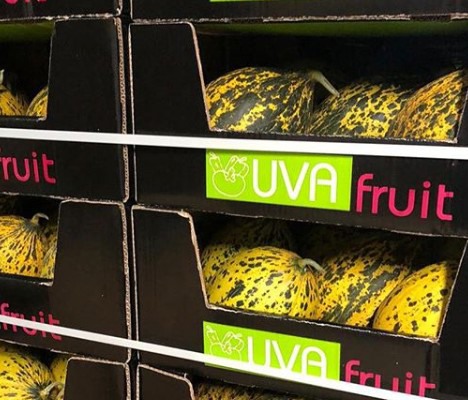
Turkish melons are now also part of UVA Fruit's seasonal range.
Minimized risk
Nevertheless, the Turkish agricultural sector must also reckon with the long-term consequences of the virus, says Sizgin. "In my opinion, the consequences of the crisis will continue to be felt for at least another year. This will also mean more time for us in the procurement of goods. Fortunately, we have already taken the appropriate precautionary measures in Turkey and can thus minimize the risks."
For more information:
UvaFruit Handels GmbH
Ziya Sizgin
Laxenburgerstrasse 367/ Top 174 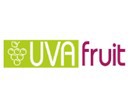
A-1230 Wien (Großmarkt Inzersdorf)
+43 1 615 07 47
[email protected]
www.uvafruit.at
